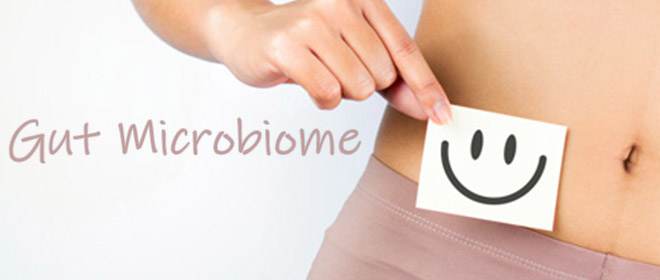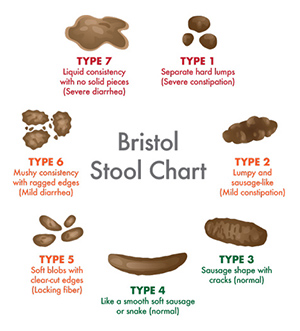
Gut health now stands at the forefront of the health and wellness arena, with more and more research suggesting it impacts far more than just the digestive system. The gut, it seems, is an extraordinary interface between the inside and the outside world, affecting almost every area of the body, including mood, immunity and sleep.
Without a healthy gut, we can’t digest and extract the nutrients from our food regardless of its nutritional value. That’s why good health always has to start with good gut health.
It can be helpful to think of our gut microbiome – the trillions of gut bacteria in our digestive tract – like a car. And if we look after this car, it will, in turn, look after us. It’s a win-win situation: we give the car fuel, and it will work alongside us.
Here, we hope to showcase that a happier, healthier gut microbiome means a happier, healthier you.

What is the gut microbiome?
It may surprise you to learn that we aren’t alone in our bodies. We have a complex and diverse community of trillions of microorganisms – bacteria, viruses, fungi and other life forms, collectively known as the microbiome – cohabiting alongside us. These tiny microbes can be found dwelling in our oral cavity, respiratory tract and skin. Most of them, however, live in the ‘pocket’ of our large intestine – and the ‘gut microbiome’ is the term given to all the microorganisms living inside your gut.

A happy gut is linked to better sleep
New research presented in the highly respected journal, Sleep, reported that increased gut diversity was associated with improved sleep quality.[4] But the inverse can also be true: just as a happy gut can improve sleep, an unhappy gut can also hinder sleep.[5]
Check in with your poop
Your poop reveals what your microbiome is doing. There’s no need to be grossed out by it (we all do it!). Relieving yourself anything between three times a week and three times a day is healthy.

Diversify your diet
There are trillions of microorganisms, mostly bacteria, dwelling in our nine-metre digestive tract. These bacteria produce legions of hormones and vitamins for our brain and every other organ in the body. This microbial community is wholly reliant on what we feed it. We have the power to shape and sustain it. And since each bacterium has different taste buds and preferences, diversity is key.
How does gut health affect us physically and emotionally?
The interest in gut health has increased exponentially in recent years. Although the scientific research is still preliminary, the more we understand the gut microbiome, the more we see it’s the intersection point for various health conditions and diseases, especially those concerning the immune system, metabolism and mood.[1]

The gut-brain-connection
Humans have always known to trust our intuition, that overwhelming and powerful instinct we can’t explain. The term ‘gut feeling’ says it all. And as research into the human microbiome continues, the connection between gut health and mental health becomes more and more compelling. It seems a healthy gut can buffer us against stress and safeguard our psychological wellbeing.
The gut-immune-system-connection
The gut doesn’t operate in isolation. There’s a triad between our gut bugs, immune system and diet – and a constant stream of bidirectional communication between all three. In fact, around 70-80 per cent of the immune system lives alongside our nine-metre digestive tract.[2] And so, in very simple terms, feeding our gut bugs means sustaining and strengthening our immune system.
Aim for 30 different plants foods every week
According to gut expert Dr Meghan Rossi, we should all be aiming for 30 different plant foods a week to support our gut health.[6] This doesn’t just mean loading up on fruit and veggies. This number includes all plant foods: grains, legumes, nuts, seeds, herbs and spices.
Eat the rainbow
Eating a rainbow of plant foods will also help to diversify your diet. The different colours in plant foods are known as phytonutrients. The more colours you eat, the more variety of these powerful nutrients you’ll be getting, and the healthier your gut will be. Think the rich hues of blueberries, carrots and beetroot.

How do we know if our gut is happy?
Your gut is pretty smart. And there are many ways it communicates with you if it’s not happy. The most obvious warning signs are gut symptoms, such as bloating, gas, constipation, acid reflux, heartburn, or food intolerances. But even if you don’t have traditional digestive symptoms, you may still need to improve your gut health. Don’t forget your gut microbiome affects almost every system in the body. If you’re the first person to catch a cold, struggling with your mental health, or battling insomnia, it may signal that you need to spend more time nurturing your gut.
We have a range of supplements to support gut health so why not browse our collection today
References
[1] Zhou Y, Li Y, Zhang X, Li S, Qin N, Yang H, Wang J, Brunak S, Doré J, Guarner F, Kristiansen K, Pedersen O, Parkhill J, Weissenbach J; MetaHIT Consortium, Bork P, Ehrlich SD, Wang J. (2010) A human gut microbial gene catalogue established by metagenomic sequencing. Nature. 4; 464(7285): 59-65.
[2] Vighi, G., Marcucci, F., Sensi, L., Di Cara, G., & Frati, F. (2008). Allergy and the gastrointestinal system. Clinical & Experimental Immunology, 153, 3-6.
[3] Valdes, A., Walter, J., Segal, E., & Spector, T. (2018). Role of the gut microbiota in nutrition and health. BMJ, k2179.
[4]19. Erika W Hagen, PhD, Elizabeth A Holzhausen, Ajay K Sethi, PhD, Kristen M Malecki, PhD, Nasia Safdar, MD, Paul E Peppard, PhD, (2019) 0106 (Sleep Duration and Quality and Diversity of the Gut Microbiome in a General Population Sample of Adults, Sleep, Volume 42, Issue Supplement_1.
[5]Smith, R. P., Easson, C., Lyle, S. M., Kapoor, R., Donnelly, C. P., Davidson, E. J., Parikh, E., Lopez, J. V., & Tartar, J. L. (2019). Gut microbiome diversity is associated with sleep physiology in humans. PloS one, 14(10), e0222394.
[6]How to get your gut-loving 30 plant points a week - The Gut Health Doctor. (2021). https://www.theguthealthdoctor.com/how-to-get-your-gut-loving-30-plant-points-a-week/
